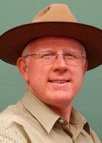The Sandford Fleming Medal
Since 1982, RCI has awarded the Sandford Fleming Medal and Citation annually
to a Canadian who has made outstanding contributions to the public understanding of science.


2011: John Dirks
He received his B.Sc.(Med) and MD from the University of Manitoba in 1957, a Fellowship in Medicine in 1963 from the Royal College of Physicians of Canada and is a Fellow of the Royal Society of Canada. He has held a number of major Professorships at McGill, UBC and the U of T. Since 1993 he has been President and Scientific Director of the Gairdner Foundation, a group that awards major international prizes in biomedicine. His own medical field is nephrology. He chaired the International Society of Nephrology Commission for the Global Advancement of Nephrology from 1994 to 2005. In 2005 he was awarded the NFK International Medal by the National Kidney Foundation (USA). He was appointed to the Order of Canada in 2006. In 2010, he received a Lifetime Achievement Award from the Biotechnology Initiative.



2012: Robert Thirsk
Bob Thirsk flew aboard the space shuttle Columbia in 1996 with six international crewmates as part of the Life and Microgravity Spacelab mission. This 17-day mission was devoted to the study of life and materials sciences.
In 2009 he became the first Canadian astronaut to fly a long-duration expedition aboard the International Space Station. Bob and his five international cremates performed interdisciplinary research, robotic operations, and maintenance and repaid work on station systems. By the end of the flight, he had lived and worked in space for another 188 days.
Bob is a strong promoter of a Canadian economy based on exploration and innovation. He encourages Canadians to build their dreams upon a solid educational foundation and advanced skills. He works with educational specialists in Canada to develop space-related curricula for grade school and post-secondary students. Initiatives such as Canolab, Space for Species, and Tomatosphere have allowed millions of young Canadians to experience the thrill of scientific discovery.


Bob Thirsk with RCI President Bruce Gitelman

2004: M. Brock Fenton
2003: Robert Buckman
Medical oncologist, teacher, presenter of award winning science-and-medicine TV programmes in Britain and Canada; host of weekly medical series on both TVOntario (Vital Signs) and Discovery Channel (Human Wildlife); author of more than a dozen doctor-patient communication books.
2002: Bob McDonald
Pioneer of use of film and video in science education in Canada and U.S.A. during the 1950s and 1960s. With Dr Donald Ivey, wrote Focus on Physics, Two for Physics, The Nature of Things, Frames of Reference and Random Events; teacher of physics and computer science; Chair of Computer Science, U of T, 1975.
2001: J. N. Patterson Hume
Science correspondent, host of CBC’s Quirks and Quarks, producer, writer/host of educational videos and books.
2000: Ursula Martius Franklin
Engineer, teacher, researcher, active in the public arena on issues of education, peace, human rights and the social impact of science and technology; Companion of the Order of Canada and Senior Fellow, Massey College, U of T.
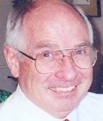

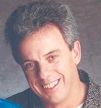
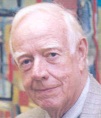
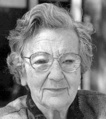
1999: John Charles Polanyi
Teacher, author, internationally-renowned advisor on science policy, the control of armaments and peacekeeping; recipient of 1986 Nobel Prize in Chemistry.
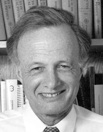
1998: Sid Katz
Teacher, broadcaster, writer and award-winning science communicator.
Biologist, educator, internationally respected expert on bats, gifted classroom and TV communicator on conservation and ecology, developed bat walks and exhibits, author of popular books about bats.
2005: Joe Schwartz
Scientist, teacher, writer, broadcaster dedicated to making chemistry fun, comprehensible and relevant. His ability to make science highly accessible has been recognized through numerous awards.
Internationally-known space artist, writer, commentator and author. His extraordinary talent is able to capture what the camera does not, to comment on exploration and adventure, to take you to places you could not go, and to document the scientific and technological pursuits of the U.S. space program for history.

2006: Paul Fjeld
National science writer for the Toronto Star since 1998, he has received three major science journalism awards in this period. It is the responsibility of science journallists to develop an understanding of science in their readers by telling its exciting, controversial, and sometimes troubling stories. He has worked tirelessly and passionately to tell those stories.
2007: Peter Calamai
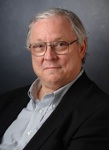
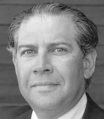
2008: Henry Lickers
A Haudenosaunee citizen of the Seneca Nation and a member of the Turtle Clan, for many years he has been the Director of the Department of Environment for the Mohawk Council of Awkesasne. He has mentored many young members of the First Nations, teaching them the ways of modern science, strengthened by the insights and values of his own people.

Killam Chair and Professor Ecology at the University of Alberta in Edmonton, he is well known for his many public presentations and lay articles on issues concerning freshwater and boreal landscapes. His work has influenced policies to control eutrophication and acid rain. His recent book with J. R. Vallentyne, The Algal Bowl, allows average citizens to understand eutrophication and how to prevent algal blooms.
2009: David Schindler
2010: Paul Delaney
He has been at York University’s Department of Physics and Astronomy since 1986, lecturing in a wide array of undergraduate courses and overseeing the campus Astronomical Observatory and its associated Public Outreach activities. He has written numerous articles on astronomy for local newspapers and magazines and has been a regular radio and television commentator, elaborating upon recent astronomical discoveries and the highlights of space missions. He has received both the Faculty of Science and Engineering and the University Wide Teaching Awards.

